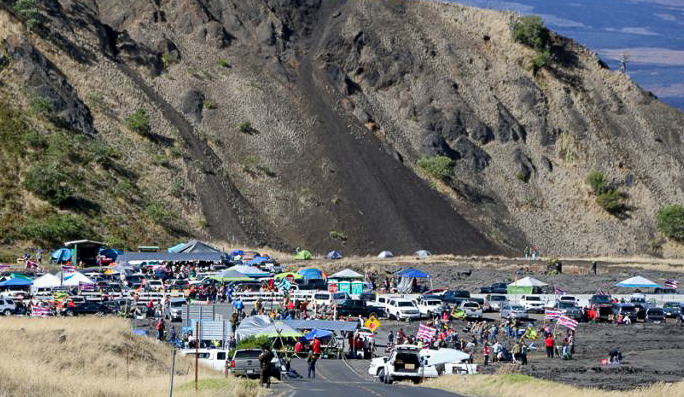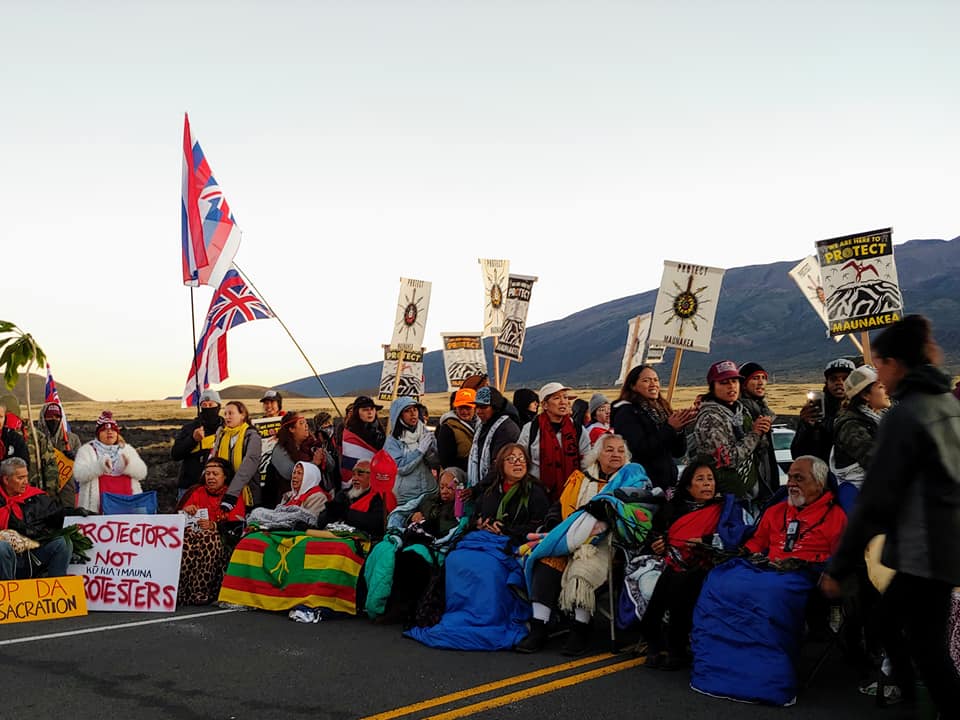Hawaiʻi Attorney General ends prosecution of elders who protested telescope on Mauna Kea
The State of Hawai’i announced on Tuesday it will not refile charges against more than two dozen kūpuna who were charged with obstructing the Mauna Kea Access Road in 2019 during a protest of the construction of the Thirty Meter Telescope on sacred land to Native Hawaiians.
New Hawai’i State Attorney General Anne Lopez said in a statement: “After extensive litigation in the original prosecution, dismissal of the cases in 2022, and careful consideration of the benefits of re-prosecution to the State of Hawaiʻi, I have decided that the continued pursuit of these cases is not in the best interests of the people of the State of Hawaiʻi.”

On July 17, 2019, day 3 of the protests and the day of the arrests, an estimated 1,000 people were at the intersection of the Daniel K. Inouye Highway (formerly known as Saddle Road) and the Mauna Kea Access Road.
Thirty-eight people, mostly Native Hawaiians, were arrested for blocking the road and preventing construction vehicles from driving up the mountain. They opposed the $1.4 billion project that they said would desecrate sacred land on 13,803-foot Mauna Kea, Hawai’i’s tallest peak.
In 2021, 30 cases were dismissed after a Hawai’i Supreme Court ruling clarified the process for filing criminal complaints. It ruled authorities had been following an incorrect procedure. Lopez could have refiled the cases but chose not to.
In August 2021, four of the 38 people arrested were found not guilty of obstructing the road by Hilo Judge M. Kanani Laubach, who ruled there were no permits issued for oversized vehicles.
On the day of the arrests, the Department of Transportation closed an approximately 30-mile stretch of the highway for about 3 1/2 hours because law enforcement indicated people and vehicles were posing a safety hazard.

Protesters, who called themselves kiaʻi (protectors), remained for months, even as temperatures got cold. Solomon Aikau, 71, said at the time: “We’re here to protect the mountain.”
The protest went on for months, with the road finally reopening on Dec. 28, 2019.
The road reopening came a week after Gov. David Ige had announced an indefinite withdrawal of state law enforcement from Maunakea, citing the Thirty Meter Telescope’s intention not to immediately move forward with construction on the mountain.
“We have been informed that the Thirty Meter Telescope will not be proceeding with construction at this time,” Ige said in a press conference that began a little after 11 a.m. on Dec. 19. “So we have made a decision that we will be withdrawing our personnel so that they can enjoy the holidays with everyone else.”

The protests led to Hawai’iʻs State Legislature forming the Mauna Kea Stewardship and Oversight Authority, a new governing body for the mountain.
Hawaiʻi Gov. Josh Green said in a statement: “I appreciate the Attorney General’s decision to dismiss the charges against our kūpuna who peacefully protested at Mauna Kea three years ago. The time has come to build a new pathway forward that considers all people and is respectful of our host culture. This is the kind of justice we want to see for our kūpuna, who stood up for what they believe in — their culture and their ancestors. I will work to find a way forward together.”



